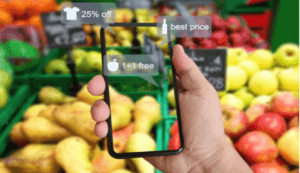Pearl Strategy and Innovation Design recently attended the webinar hosted by Food Canada where experts discussed the role of AI in food and beverage processing. Here is our take on it.
Summary:
The integration of artificial intelligence (AI) in the food and beverage industry is revolutionizing traditional processes and driving innovation. Through AI-powered solutions, companies can optimize production, enhance food quality and safety, and streamline supply chain management. The impact of AI in the food and beverage sector has much potential to drive sustainability, efficiency, and profitability.
Transformative Impact of AI in Food and Beverage Industry
Through AI-powered solutions, companies in this sector can optimize production forecasting, inventory management, and supply chain logistics. By analyzing vast amounts of data, AI enables more accurate predictions, leading to reduced waste and improved resource allocation. This evolution is driving sustainability and profitability in the food and beverage industry.
Overcoming Challenges in AI Implementation for Food Processing
The complexity of understanding new technologies and regulatory compliance are some obstacles companies face when implementing AI. Food manufacturers must navigate safety standards and regulatory requirements while using the power of AI to enhance food quality and safety. Overcoming these challenges requires a collaboration between food scientists, technologists, and regulatory experts. Prioritizing transparency and accountability, will allow companies to overcome the barriers of adopting AI and ensure compliance with industry standards.

Improving Food Quality and Safety with AI
One of the key applications of AI in the food and beverage industry is improving food quality and safety. Companies are leveraging AI-powered solutions, such as computer vision and predictive analytics, to detect contaminants, monitor production processes, and forecast the shelf-lives of perishable products. AI uses real-time monitoring and proactive intervention to minimize the risk of foodborne illnesses, spoilage, and product waste. A focus on food safety not only safeguards consumer health but also enhances brand reputation and the consumer relationship.

Optimizing Supply Chain Management through AI
AI plays a critical role in optimizing supply chain management in the food and beverage industry. By analyzing historical data and market predictions, AI enables more accurate forecasting and inventory optimization. This helps food manufacturers reduce costs, minimize waste, and improve overall operational efficiency. AI-powered recommendation systems also promote companies to collaborate closely with both suppliers and retailers, which boosts transparency and agility across the supply chain.

The Future of AI in Food and Beverage Industry
The future is already here and by embracing AI as a tool, companies can stay ahead of the curve. AI-driven innovations will play a central role in shaping the industry; from personalized nutrition to sustainable food production. AI holds new opportunities for growth, innovation, and consumer engagement.

Conclusion
As the food and beverage industry continues to evolve, the role of artificial intelligence is vital in driving growth and innovation. From optimizing production processes to ensuring food safety and enhancing supply chain management, AI-powered solutions offer many opportunities for companies to thrive in a competitive market. By embracing AI as a strategic enabler, businesses can navigate challenges, unlock new efficiencies, and deliver greater value to consumers, paving the way for a more sustainable and resilient future.
If you need support on insights, strategy or innovation connect with us at www.pearl-strategy.ca or connect with Susan Weaver at 416 908 2446
Source: Food Canada, May 21, 2024




